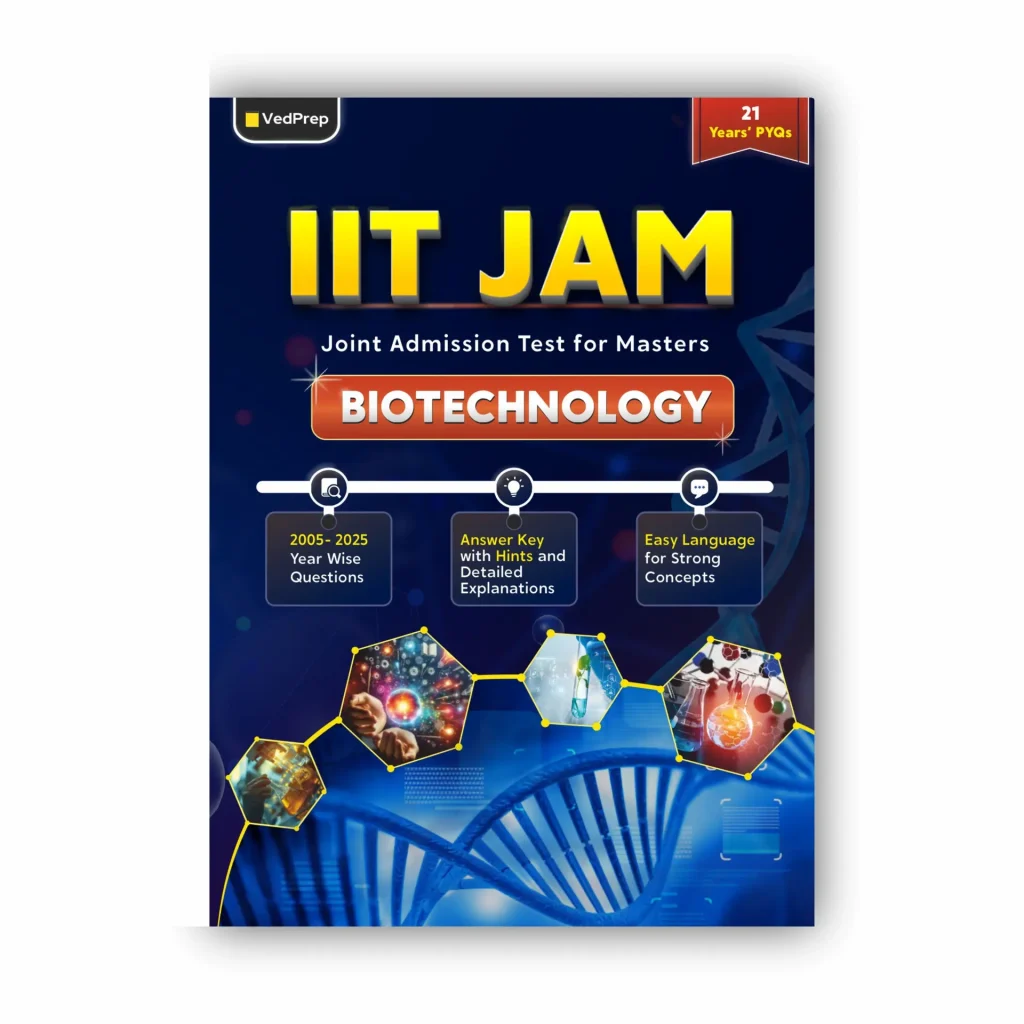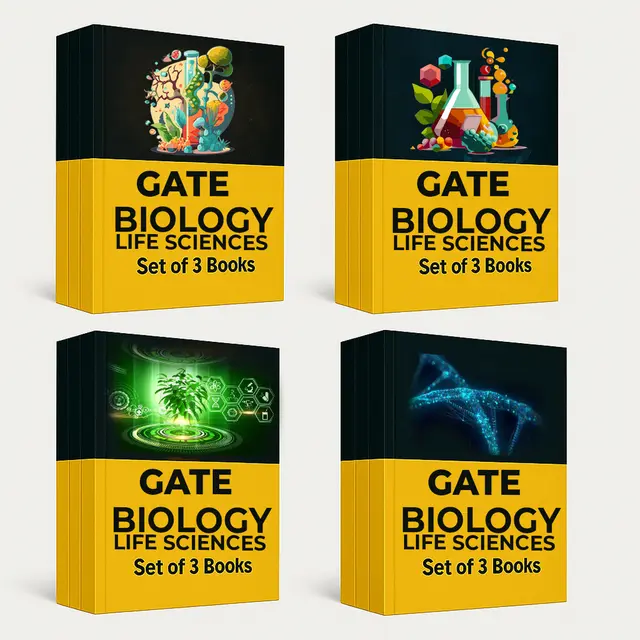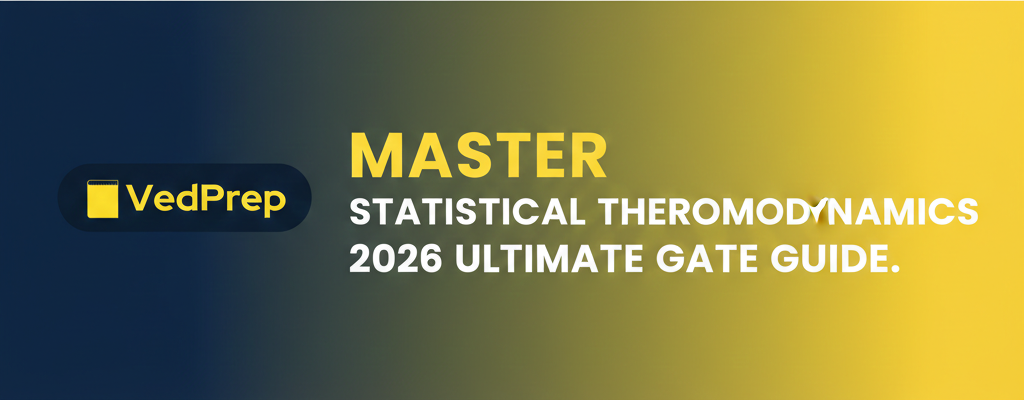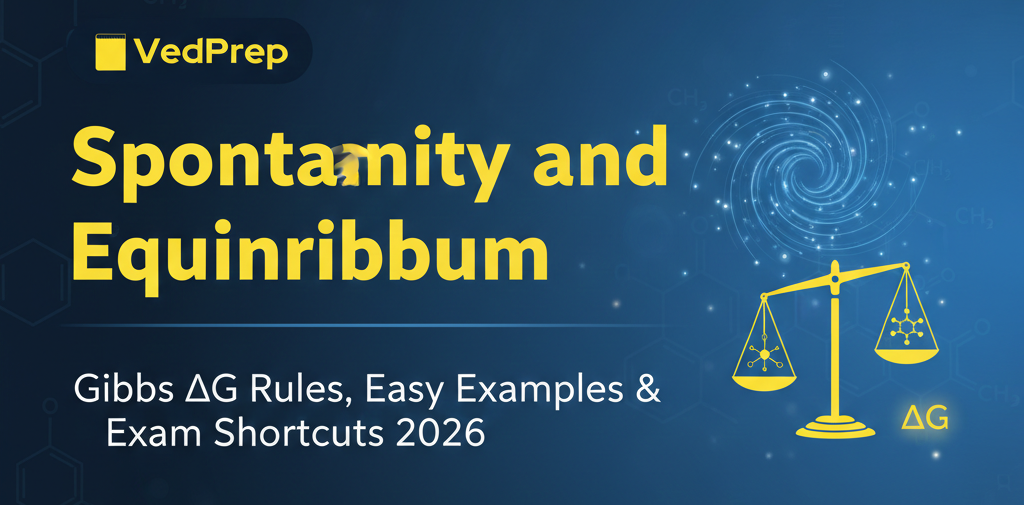CSIR NET syllabus 2025 is designed to assess a candidate’s knowledge, analytical reasoning, and research aptitude across five major disciplines. Candidates preparing for CSIR NET 2025 should adopt a strategic approach by understanding the detailed CSIR NET syllabus, mastering core topics, and practicing previous year papers to boost confidence and accuracy in the examination.
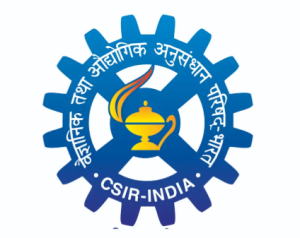
CSIR NET Exam Pattern 2025 Overview
The exam is conducted by the National Testing Agency (NTA) for the awarding of the Junior Research Fellowship (JRF) and for Lectureship/Assistant Professor eligibility in science & technology subjects.
| Exam Feature | Details |
| Exam Mode | Computer-Based Test (CBT) |
| Total Marks | 200 marks |
| Question Type | MCQs (Objective) |
| Sections in paper | Part A, Part B, Part C |
| Part A | General Aptitude |
| Part B & C | Subject-specific |
| Exam Duration | 3 Hours |
| Negative Marking | 25% (33% for selected subjects/sections) |
Also Read- CSIR NET Chemistry Preparation 2025: Exam Pattern, Syllabus, Difficulty
CSIR NET Syllabus 2025 (Subject-wise Overview)
CSIR NET Syllabus 2025 is divided into five major scientific disciplines. Candidates must select one subject while filling out the application form.
| Subject Name | Syllabus Coverage (Summary) |
| Earth, Atmospheric, Ocean & Planetary Sciences | Study of Earth systems, geology, atmospheric processes, oceanography, environmental sciences, and planetary science. |
| Chemical Sciences | Physical, organic, and inorganic chemistry along with interdisciplinary topics like green chemistry, catalysis, nanoscience, spectroscopy, and reaction mechanisms. |
| Life Sciences | Complete biology framework including molecular biology, genetics, evolution, biotechnology, ecology, physiology, and applied biology. |
| Mathematical Sciences | Includes algebra, analysis, calculus, ODE/PDE, linear algebra, probability, numerical methods, and research-based problem solving. |
| Physical Sciences | Covers classical mechanics, quantum mechanics, electromagnetism, thermodynamics, statistical physics, electronics, and experimental methods. |
CSIR NET Syllabus 2025 Paper Division
The paper is divided into three parts: Part A, Part B and Part C.
- Part A: Common for all subjects. It tests General Aptitude (logical reasoning, quantitative ability, graphical/data interpretation etc.).
- Part B: Subject‐specific conventional MCQs based on the opted subject.
Part C: Also subject‐specific, higher‐order questions (application, analysis) in the chosen stream. - Also Check CSIR NET Notes
CSIR NET Syllabus 2025: General Aptitude (Part A)
CSIR NET 2025 General Aptitude Part A syllabus is the same for all subjects and assesses candidates on their logical reasoning, numerical ability, and data interpretation skills.
| Section | Topics |
| Numerical Ability | Number & Simplification, LCM & HCF, Average, Quadratic Equations, Sequence & Series, Surds & Indices, Logarithms, Percentage, Profit & Loss, Simple & Compound Interest, Ratio, Proportion & Variation, Partnership, Allegation & Mixture, Time-Speed-Distance, Time & Work, Permutations & Combinations, Probability, Geometry, Mensuration, Trigonometry |
| Reasoning | Series Formation, Coding-Decoding, Distance & Directions, Calendar & Clock, Ranking & Arrangement, Puzzles |
| Data Interpretation & Analysis | Mean, Median & Mode, Measures of Dispersion, Bar Graph, Line Graph, Pie-Chart, Tabulation |
CSIR NET Syllabus Subject Wise (Part B and C)
CSIR NET Syllabus covers five subjects: Life Sciences, Chemical Sciences, Earth Sciences, Physical Sciences, and Mathematical Sciences.
This video simplifies everything we just discussed — take a look!
CSIR NET Life Sciences Dec 2025 | Last 45 Days Strategy | क्या करें क्या नहीं? | VedPrep Biology
CSIR NET Syllabus Life Sciences
CSIR NET syllabus for Life Sciences evaluates candidates’ understanding of biological sciences, including topics like biochemistry, genetics, ecology, molecular biology, and biotechnology. CSIR NET Syllabus Life Sciences is broadly divided into four major sections
| Section | Subject / Topic Area | Key Topics Covered |
| Section A | General Science & Basics of Life Sciences | General scientific concepts, analytical and logical reasoning. |
| Biochemistry | Biomolecules, enzymes, metabolic pathways, bioenergetics. | |
| Cell Biology | Cell structure & function, cell division, cell signaling, molecular basis of inheritance. | |
| Genetics & Evolution | Mendelian genetics, population genetics, molecular genetics, principles of evolution. | |
| Physiology (Plant & Animal) | Metabolic pathways, plant physiology, human/animal organ system physiology. | |
| Section B | Molecular Biology | DNA replication, transcription, translation, gene regulation, rDNA technology. |
| Genetics | Mendelian inheritance, gene mapping, chromosomal disorders. | |
| Cell Biology | Cell organelles, cell cycle regulation, cellular processes. | |
| Section C | Microbiology | Classification, structure, growth of microorganisms, microbial techniques. |
| Biotechnology | Genetic engineering, bioreactors, industrial microbiology, bioinformatics. | |
| Biochemical Techniques | Chromatography, electrophoresis, molecular imaging techniques. | |
| Section D | Ecology | Ecosystem structure & function, population ecology, conservation biology, pollution. |
| Evolutionary Biology | Darwinism, mechanisms of evolution, speciation. | |
| Environmental Science | Biodiversity, sustainability, environmental issues. |
you can also watch this –
CSIR NET Life Sciences Dec 2025 | Protein Targeting Lecture 5 | Nucleus and Peroxisome |Cell Biology
CSIR NET Exam 2025 Subject List and Codes
CSIR NET examination is conducted in five major subjects, each identified by a specific subject code. In addition to these, Part A (General Aptitude) is common to all papers and must be prepared alongside your chosen subject.
| Subject Code | Subject Name | Description / Coverage |
| 701 | Chemical Sciences | Includes Inorganic, Organic, and Physical Chemistry with emphasis on reaction mechanisms, spectroscopy, and chemical bonding. |
| 702 | Earth, Atmospheric, Ocean & Planetary Sciences | Covers geology, geophysics, meteorology, oceanography, and planetary science concepts. |
| 703 | Life Sciences | Encompasses molecular biology, genetics, ecology, evolution, and applied biological sciences. |
| 704 | Mathematical Sciences | Focuses on pure and applied mathematics, including algebra, analysis, differential equations, and statistics. |
| 705 | Physical Sciences | Comprises classical mechanics, quantum physics, electromagnetism, thermodynamics, and solid-state physics. |
CSIR NET Exam 2025 Topics Subtopics Detailed Syllabus Subject-wise
CSIR NET 2025 syllabus is divided into five major subjects each with specific units that assess conceptual understanding, analytical ability, and research aptitude.
CSIR JUNE 2025 : FINAL ANSWER KEY Download
1. CSIR NET Exam Life Sciences Detailed Syllabus
CSIR NET Life Sciences syllabus includes 13 major units covering fundamental and advanced concepts of biology. Check the detailed, unit-wise syllabus below to streamline your study plan.
You can also watch for better understanding click on the link – How to Crack CSIR NET Dec 2025 Life Sciences in 1st Attempt | Beginner to Topper Full Strategy
| Unit No. | Unit Title | Key Topics & Subtopics (Micro Level) |
| Unit 1 | Molecules and Their Interaction Relevant to Biology | Atomic structure, bonding and molecular interactions; Structure and function of biomolecules (carbohydrates, lipids, nucleic acids, proteins); Enzyme classification, kinetics, inhibition, coenzymes and cofactors; Bioenergetics, ATP synthesis, redox potential, and thermodynamics in biology. |
| Unit 2 | Cellular Organization | Prokaryotic vs eukaryotic cells; Membrane structure and transport; Cytoskeleton (actin, tubulin, intermediate filaments); Cell organelles and their functions; Cell division, cell cycle regulation, and checkpoints; Signal transduction pathways. |
| Unit 3 | Fundamental Processes | DNA replication, repair and recombination; Transcription (initiation to termination); RNA processing and editing; Translation and post-translational modifications; Regulation of gene expression in prokaryotes and eukaryotes. |
| Unit 4 | Cell Communication and Signaling | Hormones and receptors; G-protein coupled receptors, RTKs, MAPK, cAMP, IP3, DAG; Programmed cell death (apoptosis), oncogenes, tumor suppressor genes. |
| Unit 5 | Developmental Biology | Gametogenesis, fertilization, cleavage, gastrulation; Axis formation (Drosophila, C. elegans, Amphibians, Vertebrates); Morphogens, pattern formation, organogenesis; Stem cells and regeneration. |
| Unit 6 | System Physiology – Plant | Photosynthesis (C3, C4, CAM pathways), respiration, nitrogen metabolism, mineral nutrition; Plant hormones (auxin, gibberellin, cytokinin, ABA, ethylene); Stress physiology (drought, salt, heat). |
| Unit 7 | System Physiology – Animal | Digestive, circulatory, excretory, respiratory, endocrine and nervous systems; Muscle physiology; Homeostasis; Thermoregulation; Reproduction and development.Also Check the CSIR NET Cut Off |
| Unit 8 | Inheritance Biology | Mendelian principles, linkage, recombination, chromosomal theory; Sex determination, mutations, genetic mapping, population genetics, pedigree analysis. |
| Unit 9 | Diversity of Life Forms | Classification systems; Prokaryotes, fungi, algae, protozoa; Plant groups (bryophytes to angiosperms); Invertebrate and vertebrate diversity; Conservation and taxonomy. |
| Unit 10 | Ecological Principles | Ecosystem structure, energy flow, productivity; Population and community ecology; Ecological succession; Biogeochemical cycles; Biodiversity and conservation biology. |
| Unit 11 | Evolution and Behavior | Origin of life; Molecular evolution; Natural selection, genetic drift, speciation; Animal behavior, learning, social organization. |
| Unit 12 | Applied Biology | Immunology (antigens, antibodies, immune responses); Biotechnology (cloning, GMOs, vaccines); Environmental and industrial biotechnology; Microbial fermentation. |
| Unit 13 | Methods in Biology | Microscopy (light, electron, confocal), centrifugation, electrophoresis, spectroscopy, chromatography; PCR, sequencing, blotting techniques; Model organisms in research. |
2. CSIR NET Exam Chemical Sciences Detailed Syllabus
The CSIR NET Chemical Sciences syllabus is divided into three broad sections Inorganic, Physical, and Organic Chemistry. Check the micro-detailed syllabus below to structure your study plan effectively and target high-scoring areas.
| Section | Core Areas | Micro Topics |
| Inorganic Chemistry | Chemical bonding, structure, periodicity, coordination compounds, organometallics, bioinorganic chemistry, reaction mechanisms. | VSEPR, MO theory, crystal field theory, Jahn-Teller effect, substitution and redox reactions, catalysis by transition metals, organometallic complexes, magnetic properties, and bonding models. |
| Physical Chemistry | Quantum chemistry, thermodynamics, kinetics, electrochemistry, spectroscopy, surface chemistry, photochemistry. | Schrödinger equation, operators, thermodynamic laws, kinetics (first and second order), electrode potentials, adsorption isotherms, photochemical laws, molecular spectroscopy (IR, UV-Vis, Raman).Also Check the CSIR NET Cut Off |
| Organic Chemistry | Reaction mechanisms, reagents, stereochemistry, spectroscopy, synthetic strategies. | SN1/SN2/E1/E2 mechanisms, aromaticity, carbocations, radicals, nucleophiles, pericyclic reactions, rearrangements, reagents (LiAlH₄, PCC, OsO₄, etc.), NMR/IR/UV analysis, stereochemistry of chiral molecules. |
3. CSIR NET Exam Physical Sciences Detailed Syllabus
Physical Sciences paper in CSIR NET examines analytical and theoretical knowledge across key domains of Physics. The unit-wise detailed syllabus provided below outlines the essential topics to focus on for effective preparation.
| Section | Topics & Subtopics |
| 1. Mathematical Methods of Physics | Vector algebra & calculus, matrices, determinants, differential equations, Fourier and Laplace transforms, special functions, probability, complex analysis. |
| 2. Classical Mechanics | Newtonian mechanics, Lagrangian and Hamiltonian formulations, central force motion, small oscillations, rigid body dynamics, canonical transformations. |
| 3. Electromagnetic Theory | Electrostatics, magnetostatics, Maxwell’s equations, electromagnetic waves, reflection and transmission, Poynting vector. |
| 4. Quantum Mechanics | Schrödinger equation, operator formalism, perturbation theory, hydrogen atom, angular momentum, spin, identical particles. |
| 5. Thermodynamics and Statistical Physics | Laws of thermodynamics, Maxwell relations, ensembles, partition functions, Bose-Einstein and Fermi-Dirac statistics. |
| 6. Electronics and Devices | Semiconductor physics, diodes, transistors, amplifiers, digital circuits, operational amplifiers, logic gates. |
| 7. Atomic and Molecular Physics | Atomic structure, fine structure, Zeeman effect, molecular spectra (rotational, vibrational, electronic). |
| 8. Nuclear and Particle Physics | Nuclear forces, models, decays, detectors, cosmic rays, classification of particles, conservation laws. |
| 9. Solid State Physics | Crystal structure, X-ray diffraction, band theory, semiconductors, magnetism, superconductivity. |
How to Crack CSIR NET Dec 2025 Life Sciences in 1st Attempt | Beginner to Topper Full Strategy
4. CSIR NET Exam Mathematical Sciences Detailed Syllabus
CSIR NET Mathematical Sciences syllabus is designed to test conceptual clarity, analytical reasoning, and numerical problem-solving. Below is the detailed, topic-wise syllabus covering Algebra, Analysis, Differential Equations, Statistics, and more.
Also Check the CSIR NET Cut Off
| Section | Topics & Subtopics |
| 1. Linear Algebra | Vector spaces, linear transformations, eigenvalues, eigenvectors, inner product spaces, orthogonality, diagonalization. |
| 2. Complex Analysis | Analytic functions, Cauchy integral theorem, residue theorem, conformal mapping, Laurent series, singularities. |
| 3. Real Analysis | Sequences, limits, continuity, differentiation, integration, Riemann integration, uniform convergence. |
| 4. Algebra | Groups, rings, fields, subgroups, homomorphisms, quotient groups, ideals, polynomial rings. |
| 5. Ordinary Differential Equations (ODE) | First and higher-order ODEs, linear systems, existence and uniqueness, stability, phase portraits. |
| 6. Partial Differential Equations (PDE) | Classification, separation of variables, boundary value problems, heat and wave equations. |
| 7. Numerical Analysis | Numerical solutions of equations, interpolation, differentiation, integration, ODEs, errors and convergence. |
| 8. Calculus of Variations & Functional Analysis | Euler-Lagrange equations, Hilbert spaces, Banach spaces, linear operators. |
| 9. Probability & Statistics | Random variables, distributions, expectations, law of large numbers, central limit theorem, estimation and hypothesis testing. |
| 10. Linear Integral Equations | Fredholm and Volterra equations, kernels, resolvent functions. |
| 11. Topology | Open and closed sets, continuity, compactness, connectedness, metric spaces. |
5. CSIR NET Exam Earth, Atmospheric, Ocean and Planetary Sciences Detailed Syllabus
CSIR NET Earth, Atmospheric, Ocean and Planetary Sciences syllabus integrates topics from geology, atmospheric science, oceanography, and planetary exploration. Check the detailed breakdown below to plan your preparation effectively.
| Section | Topics & Subtopics |
| 1. Earth Science Fundamentals | Structure and composition of Earth, plate tectonics, mineralogy, petrology, geochemistry. |
| 2. Geophysics | Seismic waves, gravity, magnetic and electrical methods, geophysical surveying, heat flow. |
| 3. Atmospheric Science | Atmospheric composition, thermodynamics, dynamics, general circulation, monsoon, weather systems, climate change. |
| 4. Ocean Sciences | Ocean currents, waves, tides, ocean circulation, upwelling, marine sediments, biogeochemical cycles. |
| 5. Planetary Sciences | Origin of the solar system, planetary interiors, planetary atmospheres, space exploration, remote sensing. |
| 6. Environmental Geoscience | Soil erosion, pollution, waste management, hydrogeology, environmental impact assessment. |
CSIR NET Exam 2025 Summary Table Units in Each Subject
CSIR NET 2025 syllabus summary table, showing the subject-wise division of units and their major focus areas. This overview helps candidates plan their preparation according to the weightage of each subject.
| Subject | Total Units | Key Focus Areas |
| Life Sciences | 13 | Molecular Biology, Cell Biology, Ecology, Evolution, Methods in Biology |
| Chemical Sciences | 3 | Inorganic, Organic, and Physical Chemistry |
| Physical Sciences | 9 | Mechanics, Quantum Physics, Electromagnetism, Thermodynamics, Solid State |
| Mathematical Sciences | 11 | Algebra, Analysis, Differential Equations, Statistics, Functional Analysis |
| Earth Sciences | 6 | Geology, Geophysics, Atmospheric, Oceanic, and Planetary Systems |
CSIR NET Exam Best Books 2025 Subject-Wise Recommendations
Preparing for CSIR NET 2025 requires conceptual clarity and reliable study materials. To help you choose the right books, we’ve compiled a subject-wise list of the best CSIR NET books with updated recommendations, features, and preparation benefits.
CSIR NET Previous Year Questions Link
Best CSIR NET Life Sciences Books for 2025 Preparation
CSIR NET Life Sciences 2025 Below is a curated list of expert-recommended and topper-approved books covering all 13 units perfect for both beginners and advanced aspirants.
| Book Title | Author / Publication | Key Features |
| Life Science | Ashish Nagesh & Quaisher J. Hossain | Written in simple and clear language; covers important topics and concepts thoroughly. Includes solved papers and full-length mock tests for practice. |
| Life Sciences Book – Vol. I | Dr. Poonam Sharma | Comprehensive coverage with supporting diagrams, flowcharts, and tables for visual learning. Ideal for concept clarity and last-minute revision. |
| CSIR–UGC NET Life Sciences | Trueman’s Publication | Updated as per the latest CSIR NET syllabus. Offers concise theory, topic summaries, and previous years’ question discussions for effective revision. |
| Life Sciences Fundamentals & Practice (Part I & II) | Pranav Kumar | Well-structured content covering almost all Life Science units. Includes end-of-chapter exercises and MCQs to reinforce understanding. |
| Fundamentals of Life Sciences (Vol. I & II) | Rupendra Singh | Detailed explanations presented in a simple and systematic way. Each topic aligns with the current CSIR NET exam pattern and syllabus trends. |
CSIR NET Exam 2025 Study Plan
Planning your preparation is as important as studying itself. Below is a detailed CSIR NET 2025 study plan, designed to help aspirants manage time, track progress, and maximize their performance in the final exam.
| Phase | Duration | Focus Area | Key Actions |
| Phase 1 | 3–4 months | Syllabus Coverage | Read concepts, make short notes |
| Phase 2 | 2 months | Strengthening Concepts | Solve topic-wise MCQs, revise theory |
| Phase 3 | 1 month | Full Revision | Attempt mocks, analyze mistakes |
Daily Routine Example:
- 2 hours – Concept study
- 2 hours – Practice MCQs
- 1 hour – Revision
- 30 mins – Aptitude practice

Bonus Tip: Make your own handwritten short notes for formulae, reactions, and diagrams they help during final revision.
Also Check CSIR NET Important Questions for Life Science
CSIR NET 2025 Preparation Timetable Subject-Wise Study Plan
To crack the CSIR NET Exam 2025, a well-structured and consistent study plan is key.
Below are expert-curated subject-wise timetables for all five CSIR NET subjects designed to help you cover the syllabus completely with systematic revisions.
How to prepare for CSIR NET General Aptitude (Part A) 31-Day Study Plan
Even though Part A (General Aptitude) carries lesser weightage (30 marks), it’s a scoring section. Prepare it alongside your main subject using this 31-day micro-plan.
| Days | Topics / Focus Areas |
| Day 1–2 | Number & Simplification, Bar Graph, Line Graph |
| Day 3–4 | LCM & HCF, Mean, Median, Mode |
| Day 5–6 | Average, Quadratic Equations, Coding-Decoding |
| Day 7 | Revision of Days 1–6 |
| Day 8–9 | Sequence & Series, Series Formation, Pie-chart |
| Day 10–11 | Surds & Indices, Logarithms, Percentages |
| Day 12–13 | Profit & Loss, Tabulation, Direction-Distance |
| Day 14–15 | Revision of Days 1–13 |
| Day 16–17 | Simple & Compound Interest, Calendar & Clock |
| Day 18–19 | Ratio-Proportion, Ranking, Seating Arrangement |
| Day 20–21 | Partnership, Mixtures, Time & Work |
| Day 22–23 | Revision of Days 1–21 |
| Day 24–25 | Speed-Time-Distance, Geometry |
| Day 26–27 | Permutation & Combination, Mensuration |
| Day 28–29 | Probability, Trigonometry |
| Day 30 | Major Revision of Days 1–29 |
| Day 31 | Full Revision + Sectional Mock Test |
Tip: Practice 10–15 aptitude questions daily alongside subject preparation.
How to prepare for CSIR NET exam Chemistry 90-Day Study Plan
This 3-month plan ensures coverage of Inorganic, Organic, Physical & Interdisciplinary Chemistry, with dedicated revision blocks
| Days | Topics |
| Day 1–3 | Chemical Periodicity, Bonding |
| Day 4–5 | Main Group Elements, Acids & Bases |
| Day 6–8 | Transition & Inner Transition Elements, Coordination Compounds |
| Day 9–10 | Revision of Days 1–8 |
| Day 11–12 | Organometallic Compounds, Metal Clusters |
| Day 13–15 | Analytical & Bioinorganic Chemistry |
| Day 16–17 | Characterization, Nuclear Chemistry |
| Day 18–20 | Revision of Days 1–17 |
| Day 21–27 | Quantum Mechanics, Atomic Structure, Spectroscopy |
| Day 28–30 | Group Theory, Molecular Spectroscopy |
| Day 31–40 | Thermodynamics, Kinetics, Electrochemistry, Solid State |
| Day 41–47 | Polymers, Stereochemistry, Nomenclature |
| Day 48–56 | Organic Mechanisms, Rearrangements, Reagents, Pericyclic Reactions |
| Day 57–67 | Natural Products, Medicinal, Supramolecular & Environmental Chemistry |
| Day 68–85 | Full Revision – Physical, Inorganic, Organic Chemistry |
| Day 86–90 | Final Revision + Interdisciplinary Topics |
| Day 91+ | Mock Tests + Formula Recap |
Tip: Focus more on Part C (analytical) questions for rank improvement.
How to prepare for CSIR NET Earth, Atmospheric, Ocean & Planetary Sciences 130-Day Study Plan
A long-term plan covering Geology, Oceanography, Meteorology, Climatology & Planetary Science, structured in topic clusters.
| Days | Topics |
| Day 1–7 | Earth & Solar System, Earth Materials, Surface Processes, Tectonics, Environmental Earth Science |
| Day 8–23 | Mineralogy, Petrology, Structural Geology, Geotectonics |
| Day 24–33 | Palaeontology, Sedimentology, Stratigraphy |
| Day 34–48 | Marine Geology, Geochemistry, Economic, Precambrian Geology |
| Day 49–57 | Remote Sensing, Engineering Geology, Hydrogeology |
| Day 58–70 | Geomorphology, Climatology, Environmental Geography |
| Day 71–83 | Geodynamics, Plate Tectonics, Seismology, Field Theory |
| Day 84–100 | Meteorology (Atmospheric Electricity, Cloud Physics, Climate Modelling) |
| Day 101–107 | Oceanography (Physical, Chemical, Biological) |
| Day 108–130 | Subject-Wise Revisions (Geology → Meteorology → Geography → Geophysics) |
| Day 131+ | Full Syllabus Revision + Mock Tests |
Also Check the CSIR NET Cut Off
How to prepare for CSIR Net life science exam 90-Day Study Plan
A structured 3-month plan for Life Sciences covering all 13 units from Molecular Biology to Methods in Biology.
| Days | Topics |
| Day 1–13 | Molecules & Cellular Organization |
| Day 14–23 | Fundamental Processes, Cell Communication |
| Day 24–35 | Developmental Biology, System Physiology (Plant & Animal) |
| Day 36–52 | Inheritance, Diversity, and Ecological Principles |
| Day 53–70 | Evolution, Applied Biology |
| Day 71–85 | Methods in Biology |
| Day 86–90 | Comprehensive Revisions + Practice Papers |
| Day 91+ | Full Mock Tests & Flash Revision |
Tip: Focus on Units 1–5 and 11–13 — they hold the most weight in Part C questions.
How to prepare for CSIR NET Mathematical Science 140-Day Study Plan
Plan focused on Algebra, Analysis, Differential Equations, Topology, and Statistics, spread across 4+ months.
| Days | Topics |
| Day 1–15 | Analysis & Linear Algebra |
| Day 16–34 | Complex Analysis & Algebra |
| Day 35–59 | Topology, ODEs, PDEs |
| Day 60–78 | Numerical Analysis, Calculus of Variations |
| Day 79–100 | Integral Equations, Mechanics |
| Day 101–121 | Statistics & Data Analysis |
| Day 122–140 | Full Revision (Units 1–4), Mock Tests |
| Day 141+ | Formula Recap + Practice of Part C Questions |
Tip: Focus more on proof-based questions and Part C numerical analysis problems.
How to prepare for CSIR NET Physical Science 100-Day Study Plan
Click here to download CSIR NET Previous Year Question Papers PDF.
A comprehensive 100-day plan covering Mathematical Physics, Mechanics, Quantum, and Electronics with proper revision stages.
| Days | Topics |
| Day 1–20 | Mathematical Methods & Classical Mechanics |
| Day 21–34 | Electromagnetic Theory |
| Day 35–44 | Quantum Mechanics |
| Day 45–70 | Thermodynamics, Statistical Physics, Electronics |
| Day 71–84 | Atomic, Molecular, Condensed Matter Physics |
| Day 85–94 | Nuclear & Particle Physics |
| Day 95–100 | Final Revision + Full Mock Tests |
| Day 101+ | Formula Review & Time-Bound Practice Sessions |
Key Preparation For All Subjects
No matter which subject you choose for CSIR NET, certain preparation principles remain the same. Here are some key preparation insights for all subjects to help you plan your study routine efficiently and stay exam-ready
| Aspect | Strategy |
| Daily Study Hours | 6–8 hours (split between theory, PYQs, and revision). |
| Weekly Routine | 5 days study + 1 day revision + 1 day test. |
| Mock Tests | Attempt 1 full mock per subject every 2 weeks. |
| Note Making | Maintain formula sheets, concept charts, and short notes. |
| Revision Cycle | Revise each topic 3 times before the exam (7-day, 30-day, final cycle). |
Also, Check Important Topics for Physical Science
CSIR NET 2026 Subject-wise Syllabus PDF
Candidates can download the detailed subject-wise syllabus PDF for the CSIR UGC NET from the official Council of Scientific & Industrial Research.
| Subject Name | Download Syllabus PDF (Link) |
| Chemical Sciences | Download PDF |
| Earth, Atmospheric, Ocean & Planetary Sciences | Download PDF |
| Mathematical Sciences | Download PDF |
| Life Sciences | Download PDF |
| Physical Sciences | Download PDF |
CSIR NET Syllabus 2025 (Section-wise)
Part A — Common for all subjects (General Aptitude)
| Section | Topics Included |
| Reasoning Ability | Analogies, Coding–Decoding, Syllogism, Blood Relation, Series (Alpha/Number), Direction Test, Classification, Data Sufficiency, Venn diagrams, Statement & Conclusions |
| Quantitative Ability | Percentage, Average, Number System, Simplification, Time & Distance, Time & Work, Profit & Loss, Algebra, Ratio–Proportion, HCF–LCM, Simple & Compound Interest |
| Data Interpretation & Graphs | Tabulation, Pie-chart, Line graph, Bar graph, Measures of central tendency (Mean/Median/Mode) |
Subject-wise CSIR NET Syllabus 2025 (Part B & C)
Life Sciences – CSIR NET Syllabus 2025
| Units Included |
| Molecules & Cellular Interaction |
| Cellular Organization |
| Fundamental Processes |
| Cell Communication & Signalling |
| Developmental Biology |
| Plant Physiology |
| Animal Physiology |
| Inheritance Biology |
| Evolution & Behavior |
| Diversity of Life Forms |
| Applied Biology |
| Ecology & Principles |
| Methods in Biology |
Physical Sciences – CSIR NET Syllabus 2025
| Units Included |
| Mathematical Physics |
| Classical Mechanics |
| Electromagnetic Theory |
| Quantum Mechanics |
| Thermodynamics & Statistical Physics |
| Electronics + Experimental Techniques |
Mathematical Sciences – CSIR NET Syllabus 2025
| Units Included |
| Real Analysis |
| Complex Analysis |
| Linear Algebra |
| Algebra |
| ODEs & PDEs |
| Numerical Analysis |
| Integral Equations |
| Calculus of Variations |
| Classical Mechanics |
| Statistics & Data Analysis |
No negative marking in Part C (bonus scoring section).
Earth, Atmospheric, Ocean & Planetary Sciences – CSIR NET Syllabus 2025
| Part B (Intermediate Level) | Part C (Advanced Level) |
| Earth & Solar System | Structural Geology & Tectonics |
| Earth Materials | Mineralogy, Petrology |
| Earth’s Interior | Paleontology |
| Surface & Geological Processes | Sedimentology & Stratigraphy |
| Oceans & Atmosphere | Marine Geology & Oceanography |
| Environmental Science | Economic Geology, Geochemistry, Meteorology |
Chemical Sciences – CSIR NET Syllabus 2025
| Branch | Topics Covered |
| Organic Chemistry | Reactions, Mechanisms, Naming reactions, Stereochemistry |
| Inorganic Chemistry | Chemical bonding, Coordination chemistry |
| Physical Chemistry | Thermodynamics, Quantum chemistry, Electrochemistry |
| Advanced Areas | Green Chemistry, Nano-chemistry, Supramolecular Chemistry, Catalysis, Medicinal Chemistry |
CSIR NET Syllabus 2025 — Download PDFs
| Subject Name | PDF Link |
| Earth / Atmospheric / Ocean / Planetary Sciences | Click Here |
| Chemical Sciences | Click Here |
| Life Sciences | Click Here |
| Mathematical Sciences | Click Here |
| Physical Sciences | Click Here |
To crack CSIR NET 2025, understanding the syllabus and weightage distribution is the first step. Download the PDFs, plan topic-wise study, and attempt previous year papers to boost accuracy.
CSIR NET Syllabus 2025 FAQs
How many subjects are available in CSIR NET?
There are five subjects: Life Sciences, Chemical Sciences, Physical Sciences, Mathematical Sciences, Earth Sciences.
Is Part A the same for every subject?
Yes. Part A tests general aptitude (Reasoning + Maths + Data Interpretation).
Is there negative marking in CSIR NET?
Yes. 25% negative marking (33% for some subjects).
Can I change my subject choice after submission?
No, once submitted, the subject cannot be changed.
What is the total duration of the exam?
The exam duration is 3 hours (single session).









